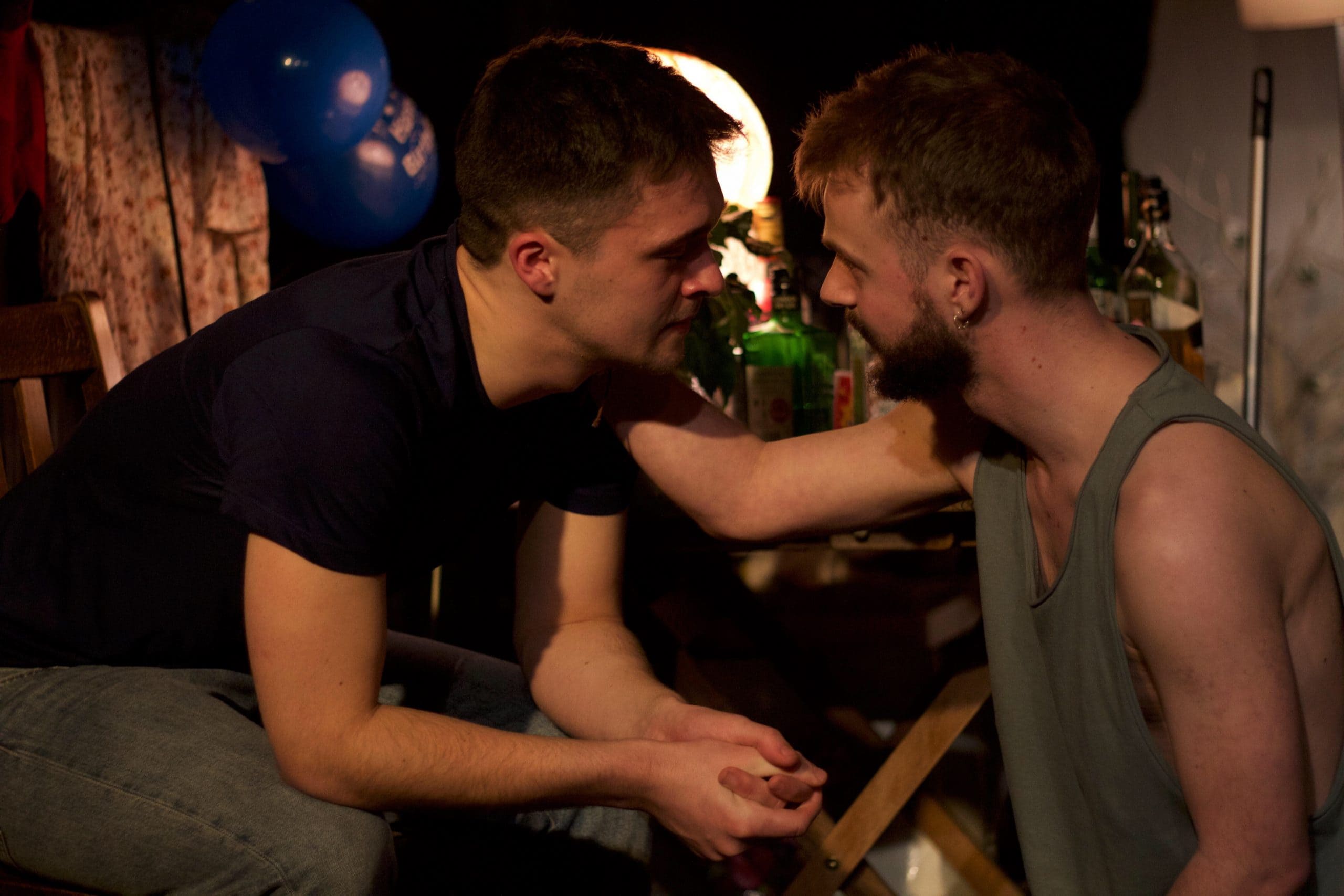Like Edward Albee’s Whose Afraid of Virginia Woolf?, James Meteyard’s play explores a (metaphorical) hangover from years of trauma and delusion. Opening with a debauched celebration, nicely summarised, we join a group of mid-twentysomethings slowly discovering their grief over a tragedy that happened at college. In this drama about adult friends living together, the ambition is impressive, but the results are uneven.
The humour is on one note but delivered well; especially by Atilla Akinci, whose character is the only one removed from past events (using him more could have aided exposition). A bigger problem is the dialogue around those big sex and death themes – horribly stilted and painfully long winded. Will is the troubled lead with a secret – credit to Jamie Chandler for dealing with some clunky lines. One analogy – something to do with a scab – is so laboured that I glazed over. Chief culprit in the bar-room philosophy stakes is Will’s “bro” Harlan, who has an attraction for abstractions that Alex Forward braves valiantly. Injecting some much-needed realism into the group is Megan Pemberton’s Phoebe – the only character even trying to act her age. Cat Robey’s direction needs to speed this indulgence up considerably.

Tiresome heart to hearts, accompanied by far too much forehead slapping and exasperated sighs, are in stark contrast to scenes of tension. The group’s old friend Max’s release from prison and arrival ‘home’ are superb: the mood changing instantly and the suspense terrific. It’s a small role for Callum Cameron, but he steals the show and brings out the best in his colleagues, particularly former partner and unforgiving ex-pal played by Eleanor Crosswell and Olivia Sweeney respectively. Meteyard also performs here – well, it should be added – arguing the case for Max while his own character’s agenda creates a tense undertow.
There’s a suspicion this confrontational scene was the kernel for the play – it’s strong enough – but it takes forever to arrive. Too much effort is expended on giving time to each member of the ensemble. There’s a bold end, but it’s a shame this scene is the only one that feels hurried. Overall, a work with potential that needs polish.
Until 26 March 2017
Photos by Isaac Whittingham

